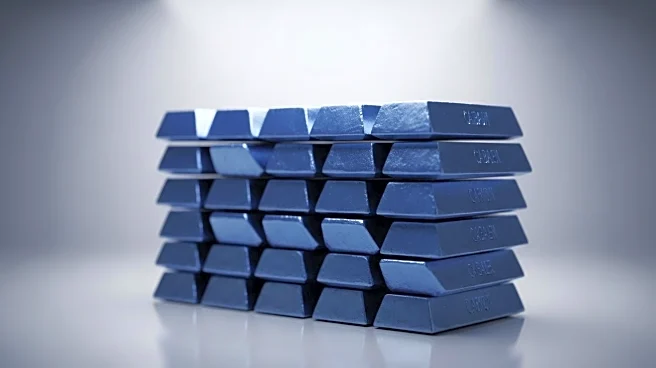What's Happening?
The Democratic Republic of Congo has announced the lifting of its ban on cobalt shipments starting October 16, 2025. This decision comes with the introduction of export quotas aimed at better managing the global supply of cobalt, a critical mineral used in various industries, including electronics and electric vehicles. According to the Authority for the Regulation and Control of Strategic Mineral Substances’ Markets (ARECOMS), miners will be allowed to export up to 18,125 tons of cobalt in 2025, with annual caps increasing to 96,600 tons for 2026 and 2027. This move is expected to stabilize the cobalt market and address supply chain concerns.
Why It's Important?
Cobalt is a vital component in the production of batteries for electric vehicles and other electronic devices, making it crucial for the technology and automotive industries. The lifting of the ban and the introduction of export quotas by Congo, one of the world's largest producers of cobalt, is likely to have significant implications for global supply chains. This decision could lead to more stable pricing and availability of cobalt, benefiting manufacturers and consumers alike. However, it also raises questions about the environmental and social impacts of increased mining activities in the region.
What's Next?
The implementation of export quotas will require careful monitoring and regulation to ensure compliance and prevent market manipulation. Stakeholders, including mining companies and international buyers, will need to adapt to the new regulatory framework. Additionally, there may be increased scrutiny on the environmental and ethical practices of cobalt mining in Congo, potentially leading to calls for more sustainable and responsible mining practices.









